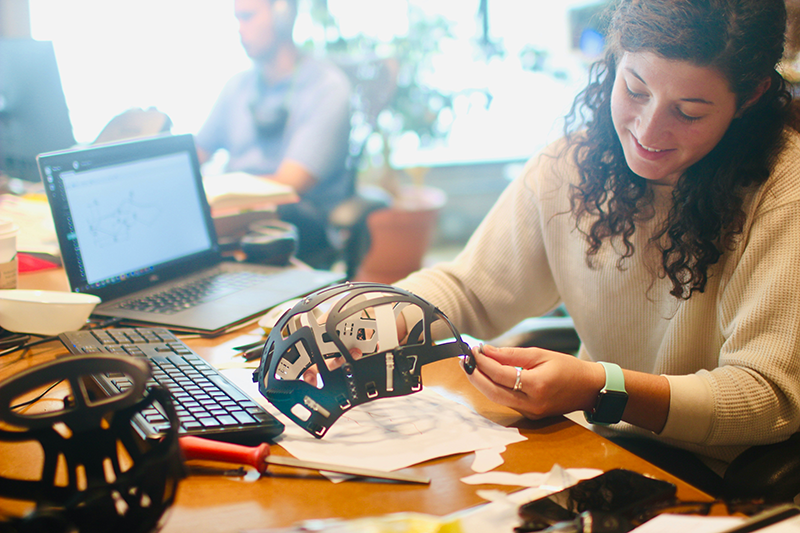
Arbeitsbedingungen und nachhaltige Arbeit
Arbeitsbedingungen und nachhaltige Arbeit sind eine der sechs wichtigsten Tätigkeitsbereiche im Arbeitsprogramm von Eurofound für den Zeitraum 2021–2024. Eurofound wird auch weiterhin als Kompetenzzentrum für die Überwachung und Analyse von Entwicklungen in diesem Bereich tätig sein, einschließlich der Frage, wie sich die COVID-19-Krise auf die Arbeitsbedingungen und die Qualität der Arbeitsplätze sowie auf betriebliche Praktiken auswirkt.
Im Zeitraum 2021–2024 wird Eurofound wichtige Erkenntnisse zu den Herausforderungen und Aussichten im Zusammenhang mit Arbeitsbedingungen und nachhaltiger Arbeit in der EU bereitstellen. Aufgrund der langjährigen Erfahrung und des ausgewiesenen Know-hows der Agentur in diesem Bereich wird Eurofound Trends und Fortschritte im Zeitverlauf näher beleuchten und neu aufkommende Probleme rund um die Themen Arbeitsbedingungen und Arbeitsplatzqualität aufzeigen. Die Analyse erstreckt sich auf verschiedene Länder, Wirtschaftszweige, Berufe und Beschäftigtengruppen zu Themen wie z. B. Arbeitsorganisation und Telearbeit, Arbeitszeit, Vereinbarkeit von Beruf und Privatleben, Gleichbehandlung, Gesundheit und Wohlbefinden am Arbeitsplatz , Kompetenzen und Fortbildung, Einkommen und Aussichtenund Arbeitsplatzzufriedenheit. Ein besonderer Schwerpunkt liegt dabei auf atypischen Beschäftigungsformen, insbesondere Selbständigkeit.
Angesichts der demografischen Herausforderung, mit der die EU aufgrund der alternden Bevölkerungkonfrontiert ist, und der zunehmenden Vielfalt, die das Erwerbsleben kennzeichnet, wird Eurofound auch weiterhin die Faktoren untersuchen, die mehr Arbeitnehmern einen längeren Verbleib auf dem Arbeitsmarkt ermöglichen. Aber auch die Verbesserung der Arbeitsplatzqualität als wichtige Voraussetzung für eine höhere Erwerbsbeteiligung und eine gesteigerte Motivation der Arbeitnehmer wird stärker in den Vordergrund gerückt, was dazu beiträgt, dass die Arbeit im Lebensverlauf nachhaltiger wird.
Die Zusammenhänge zwischen Arbeit und Gesundheit werden in enger Abstimmung mit der Europäischen Agentur für Sicherheit und Gesundheitsschutz am Arbeitsplatz (EU-OSHA) untersucht. Eurofound beabsichtigt, auf der Zusammenarbeit mit der Internationalen Arbeitsorganisation (IAO) in Fragen rund um die Zukunft der Arbeit und der Arbeitsbedingungen auf globaler Ebene aufzubauen.
































